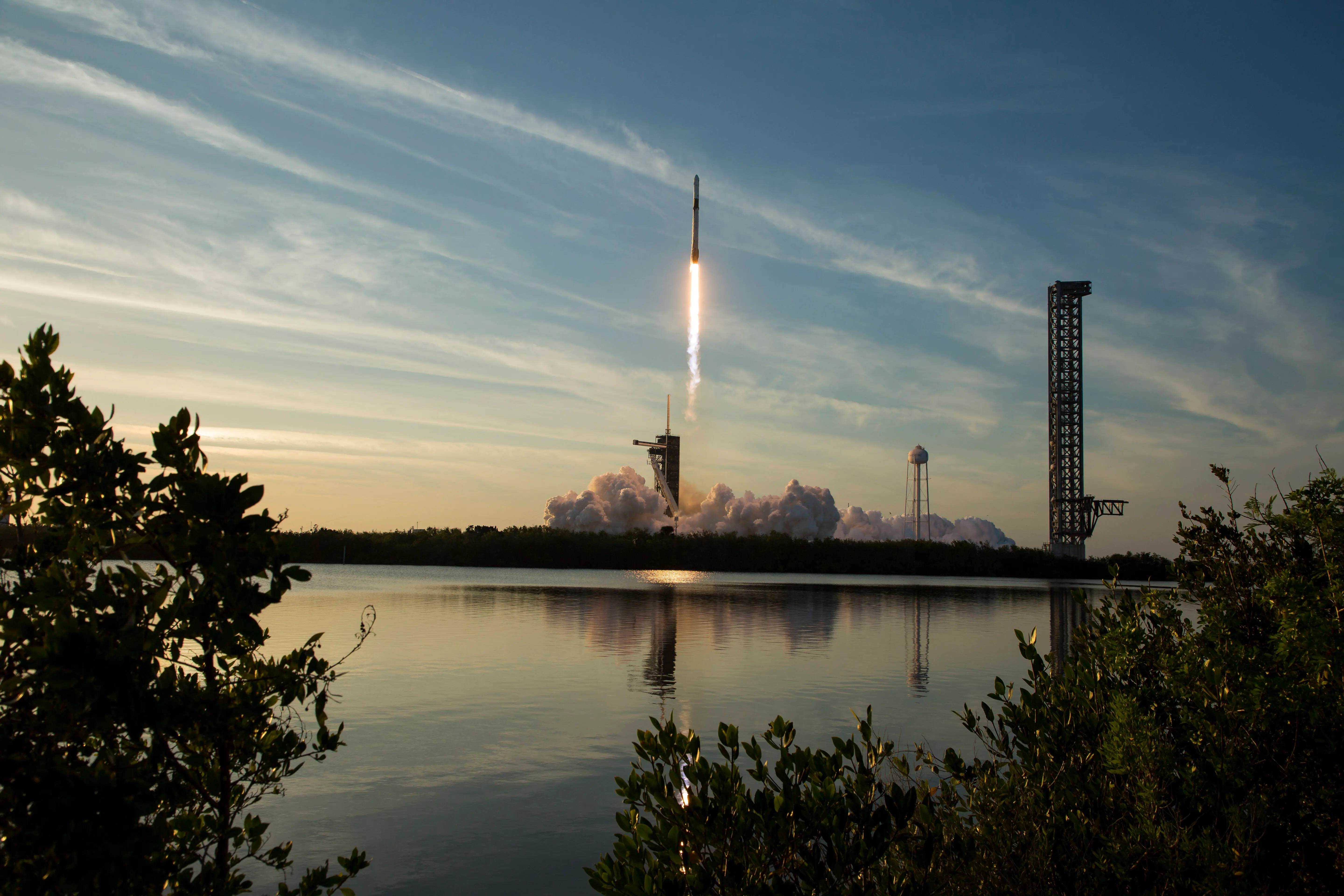What is Project Athena? All about the leaked plan that could turn NASA into a private space empire
-
 CAPE CANAVERAL, FL - MARCH 14: (EDITOR'S NOTE: This Handout image was provided by a third-party organization and may not adhere to Getty Images' editorial policy.) In this NASA handout, a SpaceX Falcon 9 rocket carrying the company's Dragon spacecraft for the Crew-10 mission to the International Space Station takes off at NASA's Kennedy Space Center on March 14, 2025 in Cape Canaveral, Florida. NASA's SpaceX Crew-10 mission is the tenth crew rotation mission of the SpaceX Crew Dragon spacecraft and Falcon 9 rocket to the International Space Station as part of the agency's Commercial Crew Program. McClain, Ayers, JAXA (Japan Aerospace Exploration Agency) astronaut Takuya Onishi, and Roscosmos cosmonaut Kirill Peskov launched on schedule at 7:03 p.m. EDT, from Launch Complex 39A at the NASA's Kennedy Space Center. (Photo by Aubrey Gemignani/NASA via Getty Images)
CAPE CANAVERAL, FL - MARCH 14: (EDITOR'S NOTE: This Handout image was provided by a third-party organization and may not adhere to Getty Images' editorial policy.) In this NASA handout, a SpaceX Falcon 9 rocket carrying the company's Dragon spacecraft for the Crew-10 mission to the International Space Station takes off at NASA's Kennedy Space Center on March 14, 2025 in Cape Canaveral, Florida. NASA's SpaceX Crew-10 mission is the tenth crew rotation mission of the SpaceX Crew Dragon spacecraft and Falcon 9 rocket to the International Space Station as part of the agency's Commercial Crew Program. McClain, Ayers, JAXA (Japan Aerospace Exploration Agency) astronaut Takuya Onishi, and Roscosmos cosmonaut Kirill Peskov launched on schedule at 7:03 p.m. EDT, from Launch Complex 39A at the NASA's Kennedy Space Center. (Photo by Aubrey Gemignani/NASA via Getty Images)Jared Issacman’s Project Athena, a 62-page leaked document, sparks debate over the ambitious and controversial plan to reshape the space agency NASA into a private space empire. Isaacman, who was first nominated after President Donald Trump’s 2024 election victory but later saw his nomination withdrawn, was renominated last Tuesday (November 4) for NASA’s top job.
He confirmed the existence of the leaked document, called “Project Athena”, which is dated May 2025, saying on social media that “parts of it are now dated.” However, he added that it was “better to have a plan going into a responsibility as great as the leadership of NASA than no plan at all.” Even so, the leak has caused a lot of speculation about how NASA would change if Isaacman becomes its leader.
What is Project Athena, and what sweeping goals does the “leaked document” lay out to transform NASA?
According to reports by CNN, it proposes an idea to revamp NASA centres to focus on nuclear electric propulsion. Additionally, creating a new Mars exploration program called Olympus, and also using an “accelerate/fix/delete” approach to reorganize the agency, are among its initiatives. If enacted, it could significantly alter how NASA operates and affect its 18,000 employees.
Casey Dreier, Chief of Space Policy at the Planetary Society, even said that the document is “presenting a more dramatic set of changes than many in the space community were expecting.” (via CNN). The original version of Project Athena was over 100 pages long. Isaacman printed only three hard copies of a shortened 62-page version, which he gave to Transportation Secretary Sean Duffy and his chief of staff.
Reports from Ars Technica and CNN suggest the leak might have been an attempt by Duffy—who is currently acting NASA Administrator—to create controversy and possibly block Isaacman’s confirmation.
Here’s a brief look at new projects and goals mentioned in Project Athena
One major goal in Project Athena is to launch a new Mars exploration program named Olympus. This plan was designed to align with SpaceX’s proposal to send an uncrewed Starship mission to Mars next year. Since SpaceX’s mission is self-funded, NASA could join in at little cost to taxpayers, according to CNN.
The plan also proposes a major new focus on nuclear electric propulsion. This technology could make deep-space missions faster and more efficient by using electricity from small nuclear reactors to power spacecraft. Project Athena even suggests a demonstration mission where a nuclear-powered spacecraft “docks with a crewed vehicle in orbit.”
When Trump took office, he emphasized Mars exploration in his speeches, but skipped mention of the Moon. Isaacman told lawmakers in April that he wanted to pursue Mars and Moon missions together, though funding was a concern.
One part of Project Athena says NASA should “get out of the taxpayer-funded climate science business” and let universities handle it, a statement that critics argue could harm U.S. climate research. Under the “Trump administration’s deferred resignation program,” NASA has already lost about 4,000 of its 18,000 employees.
In a social media post last week, Isaacman said he wants to stop making small, step-by-step changes and instead carry out “a single, data-driven reorganisation aimed at reducing layers of bureaucracy between leadership and the engineers, researchers, and technicians.”
Isaacman himself said he will stand by the plan if it becomes public but doesn’t want to debate it “line-by-line while NASA and the rest of the government are going through a shutdown.”
Whether Congress and NASA’s workforce embrace these sweeping changes remains to be seen, but one thing is clear: if confirmed, Isaacman plans to make NASA think big again.
TOPICS: Project Athena